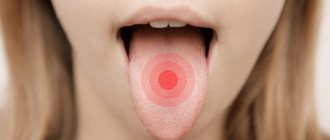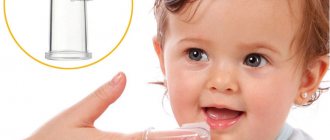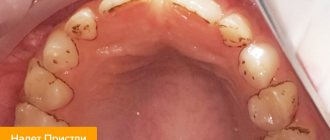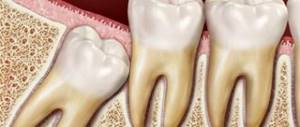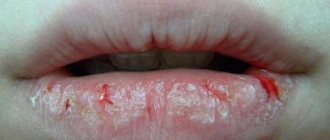Summer is a great time for relaxation and travel, an opportunity to visit relatives and friends, which entails changes in the usual diet, and sometimes changes in the usual food consumption pattern. And the situation when a child suddenly vomits is quite alarming and tense. The child is lethargic, capricious, and there is a specific smell from the mouth when breathing...
Acetonemic syndrome in children (or acetonemic vomiting) is an unpleasant phenomenon and occurs quite often and unexpectedly. The reasons for its occurrence are varied, but the manifestations are always similar. This is the result of an increase in the blood level of ketones, products of incomplete oxidation and breakdown of fatty acids and amino acids.
Acetone in the body
There is only one way for acetone to get into a child’s blood. It is considered an element of partial breakdown of fat and protein elements. For this reason, toxic substances called ketones accumulate in cells. Acetone refers specifically to their varieties.
First, ketones are oxidized almost to the point of harmless substances, after which they leave the body in urine and through the lungs. If, in comparison with the amount removed, the growth of toxic components is significantly higher, they do not have the best effect on the body’s systems, including the full functioning of the brain.
Prevention of acetonemia in a child
Preventive measures include adequate sleep 8-10 hours a day and daily walks outside. If the problem is not predisposed by genetics, then it can be avoided by following simple rules.
Control the consumption of caviar, canned food, nuts, chocolate, butter, and strong meat broth. Overweight children should be strictly supervised by their parents. Arrange fasting days during the week. In addition, you need to supplement your child’s diet with balanced vitamins.
It is recommended to change your daily routine by introducing light physical activity and logic games. Minimize the consumption of animal fats and acidic foods, which subsequently form gases in the intestines.
In no case should parents self-medicate, even if they know how to stop an attack of acetonemia and reduce symptoms.
Reasons why your child’s breath smells like acetone
Halitosis is often accompanied by an increase in temperature.
Medicine considers this unpleasant phenomenon with the Latin word – halitosis. If a child’s (including infants and teenagers) breath smells like acetone, this is a characteristic signal of acetone syndrome.
Often the problem is accompanied by a similar aroma of urine, nausea and vomiting with an increase in body temperature.
The disease acetonemia is perceived by many doctors as a rather serious disease; the child’s appetite decreases as the work of metabolism increases.
This promotes an increase in the number of ketone cells, which is indicated by the following signals:
- the child’s breath smells like acetone and there is weakness and muscle weakness;
- pale coloration of the skin surface, and the appearance of bluish circles in the eye area;
- a sharp rise in body temperature, and it can rise above 38 degrees;
- paroxysmal pain in the intestinal tract;
- the occurrence of vomiting immediately after eating food;
- breath smelling of acetone.
Glucose is recognized as a key primary source of energy supply to body cells. Next, according to formation, adipose tissues are located. With a lack of glucose, cells switch to fats. For this reason, the body gradually accumulates not only acetone, but also other toxic substances. In more detail, the reasons why a child’s breath smells like acetone are indicated in the table below:
| Origin of the disease | Nature of the disease |
| Unbalanced diet | Violating the rules of eating places an excessive burden on the body. Taking a small amount of glucose causes protein and fat to break down, increasing the percentage of acetone. The child's body needs an increased supply of glucose. |
| Diabetes | The disease is associated with impaired carbohydrate metabolism. A small percentage of insulin finds it difficult to cope with the required amount of glucose, which is why it gradually accumulates. The brain lacks glucose, so it switches the body to an increased operating mode, thereby forming a lot of ketone bodies. The child constantly experiences a feeling of thirst and frequent urination. Even when a patient has an excellent appetite, he still loses weight. |
| Acetonemia | When a strong acetone smell appears only once, we can talk about an acetone crisis. If the syndrome manifests itself systematically, this indicates acetonemic syndrome. |
| Infection | The child's body suffers from dehydration. The risk of developing the disease increases with long-term illnesses and poor food intake. Boys are predominantly affected. |
| Neuro-arthritic diathesis | Often the disease manifests itself in girls. Due to poor liver function, blood cells gradually accumulate ketone elements and uric acid. |
| Thyroid diseases | The gland is responsible for the volume of hormones. With any dysfunction, hormones are born in double numbers, which accelerates the breakdown of protein and fatty substances. |
| Liver and kidney problems | In the body, these two organs are necessary for filtration, ridding the body of everything that is not needed. If their functioning is not stable, substances begin to accumulate. |
| ENT diseases, etc. | The appearance of a characteristic odor during viral infections and ENT ailments appears due to an increase in metabolic rate and decreased appetite. As a result, accelerated processing of proteins and fats occurs, and an increase in the percentage of ketone bodies. |
Acetone in children, treatment (Komarovsky).
It must be said right away that the smell of acetone can be overcome at home (if the cause is related to poor diet). But this does not apply to all other causes of the disease. The entire course of treatment must be carried out under the supervision of a doctor.
Instructions for actions at home:
- Cleansing enema (1 teaspoon of soda, 250 ml of water).
- Alkaline drink every 15 minutes.
- If there is no vomiting, give dried fruit compote.
- Regidron - 1 liter should be taken per day (a teaspoon every 2 minutes).
- If appetite returns, give lean food.
- Prevention: healthy lifestyle, walks in the fresh air, daily routine, sports, balanced nutrition.
On the issue of prescribing medications, Dr. Komarovsky E.O. speaks about the prescription of drugs exclusively by the attending physician.
How to do an enema with acetone in children with soda, read here.
If a child is vomiting profusely, it is possible to take Smecta or Phospholugel (enterosorbents). Despite all their harmlessness, the wrong dosage can lead to negative consequences on the body.
Diagnostics
Urine analysis for acetone content.
The pediatrician conducts the initial examination of the child. He issues a referral for tests like this:
- general urine, stool and blood tests;
- urine and blood analysis for the percentage of glucose, pH, β-hydroxybutyrate, electrolytes, phosphate, creatinine and dimethyl ketone.
A diagnosis is made if examination reveals a high percentage of blood glucose along with abnormal ketones and acidosis. Often, a deficiency of bicarbonate, potassium and phosphate is detected.
If a child’s breath smells like acetone, the pediatrician must prescribe a blood test that reveals the percentage of thyroid hormones and the presence of antibodies.
If there is a suspicion of hyperthyroidism, additional instrumental diagnosis is performed. For this purpose, ultrasound of the thyroid gland or x-ray is used. Ultrasound examination of the kidneys, liver and pancreas is less common.
Symptoms of acetonemia in children
Among the symptomatic signs, in addition to the smell of acetone, the child may experience:
- pale skin color;
- lethargy and weakness;
- pain in the intestines;
- headache and occipital pain;
- body temperature up to 39 degrees.
- breath smell reminiscent of sour apples;
- a sign of a serious condition is impaired consciousness, convulsions.
Treatment of acetone odor and its causes
It’s good if parents contact a specialist as soon as their child’s breath starts to smell like acetone. In this case, the therapeutic course of treatment is aimed at two key areas:
- supplying blood cells with glucose;
- rate of ketone elimination.
If a child is vomiting, doctors recommend giving the child tea with the addition of a small amount of honey. This is necessary so that the amount of glucose has time to be replenished.
The liquid is given one teaspoon every 5 minutes to avoid the manifestation of a secondary gag reflex. The drink must be given at night. It is advisable to alternate tea with still mineral water or rice broth. In severe cases of the disease, glucose is injected into the blood intravenously through a dropper.
You cannot force a child to eat food against his wishes. If he himself asks for food, you can start with bread, cookies, baked apples, light soup or puree made from various vegetables. To avoid dehydration, adults must give the child the required amount of water.
If an increased percentage of acetone is detected, the following medications are used in therapy:
- “Atoxil” - absorb poisons and remove them from the blood;
- "Regidron" - restores the acid-base level;
- "Smecta" - like "Atoxil", makes it difficult to absorb toxic substances through the intestinal tissue.
Immediately after first aid is provided and the acute period of the illness ends, the baby is given the drug “Stimol”. It supplies the body with energy and improves overall condition. Betargin restores liver function quite well. For pancreatic dysfunction, doctors prescribe Creon. Its components improve digestion and give the child vigor.
Preventive measures
Be sure to regularly visit the dentist with your child as a preventative measure!
It is not advisable to drown out the smell of acetone with fresheners and toothpastes , otherwise in the future you will have to deal with serious diseases. It is good if the family visits the dentist once every six months, since this becomes a habit from an early age.
The first preventive measures start in early childhood in the form of high-quality teeth cleaning. Adults should teach the child to brush their teeth for a long time, and at least twice a day in the morning and evening, and after each meal, rinse their mouth well with plain water.
Habit formation should be carried out immediately after the appearance of the first teeth. Until the age of 7, the mother should be nearby and ensure that the child cleans the teeth and the space between them efficiently and for a long time.
Many fruits, berries and vegetables cope with mechanical cleansing of the oral cavity from various types of bacteria. The thing about mints and sweets is that they dry out the inside of your mouth, which is an ideal environment for pathogens to grow. To prevent dryness from appearing, during sports training and in stressful circumstances, the child should drink liquid.
If the child is still too small, teeth are cleaned using special brushes that adults put on their fingers and clean themselves.
Diet
Diet is an important component of treatment for elevated acetone in the body.
With an increased level of acetone in childhood, the child needs to follow a certain diet, as this helps to avoid relapses. First of all, doctors prohibit the consumption of canned food, and recommend completely eliminating the following products from the menu:
- legumes;
- sparkling water;
- fatty, fried, smoked and spicy foods;
- semi-finished meat products;
- sour cream, mustard and various sauces;
- chips;
- cauliflower.
Dietary nutrition must be followed for 2-3 weeks. It is advisable to feed your baby potato-based purees, vegetable-based first courses and rice porridges. After 7 days, crackers and lean meat are gradually introduced into the menu. Dishes are boiled or baked.
After about 14 days, raw vegetables, parsley, dill and other herbs are added to the diet. New food is introduced into the menu gradually to avoid overloading the body.
Treatment of acetonemia in a child in a hospital setting
On the first day, the child’s intestines are cleansed with sodium bicarbonate (1-2%), every 15 minutes. Antispasmodics are prescribed: Dicyclomine, Simethicone.
For exicosis, a glucose solution with insulin and a crystalloid sodium-containing solution (Ringer's solution 9%) are prescribed.
With acetonemia, the exocrine function of the pancreas decreases, so hepatoprotectors are prescribed, such as Enterosan, Hepatosan, Creon, Flamin, Pangrol. They neutralize harmful substances in the body.
When acetone appears in the urine, the body experiences stress, so it is advisable to include sedatives in therapy - valerian root, hawthorn flower tea, Pavlov's mixture.
Chamomile, lemon balm and fennel are used as pain relievers. For severe antispasmodic pain - no-spa intramuscularly.
Antiemetic drugs are prescribed if the child has vomited for three days in a row (Motilium, Metoclopramide, Cerucal).
To support a child’s body during a crisis, vitamin complexes are prescribed: Undevit, Ascorutin, Revit.
Popular questions
A pronounced smell of acetone from a child’s mouth indicates the presence of a disease. Usually the smell gives rise to feelings of apprehension and a lot of questions among parents.
Why might a baby's breath smell like acetone?
The occurrence of odor in an infant may indicate problems with the functioning of the pancreas, since this disease is closely related to the acetone crisis. It is advisable to seek advice from a specialist as soon as possible. First you need to visit a pediatrician and an endocrinologist. These specialists will definitely advise you on the percentage of blood sugar and the presence of other nuances.
The pediatrician will definitely send the baby to donate urine and blood for a thorough examination in the laboratory. If necessary, stool is collected and an ultrasound is performed.
Sometimes such troubles appear due to the presence of a parasitic infection, as well as kidney and liver disease.
What to do if you smell after vomiting?
The disease indicates an imbalance in metabolism and an acetonomic crisis. This condition manifests itself even before vomiting occurs. Initially, the child loses his appetite and experiences increased fatigue.
Afterwards, painful sensations appear in the navel area and other troubles. Adults need to call a doctor at home, and until the specialist arrives, gradually give the child a little liquid.
What does Komarovsky say about the smell of acetone from the mouth of children?
Dr. Komarovsky does not think that the smell of acetone is too dangerous for a child. He encourages parents to regard the syndrome as a characteristic feature of the child’s body. The main thing is that adults have a good understanding of what processes are moving in a child’s body at the time of exacerbation of the syndrome.
As for the reasons for its occurrence, the issue is quite controversial. Komarovsky identifies diabetes mellitus, problems with the kidneys, liver and pancreas, infectious processes and traumatic brain injuries as the main ones.
Who is at risk
Preschool children suffer more from high levels of acetone. The reason lies in metabolism. This is how the body responds to a stress factor. Increased acetone in children can provoke an infectious disease, failure to eat and stress.
Acetonemic syndrome generally disappears after 12 years. But each type of disease has individual treatment and requires special attention, since in advanced cases of AS, seizures appear.
Important! Parents should carefully monitor their child's behavior to avoid elevated ketones, which poses the greatest danger. Accumulated ketone bodies affect the vomiting center of the brain.
The consequences of increased acetone are permanent dehydration and the inability to take fluids, which is deadly for a preschooler.


